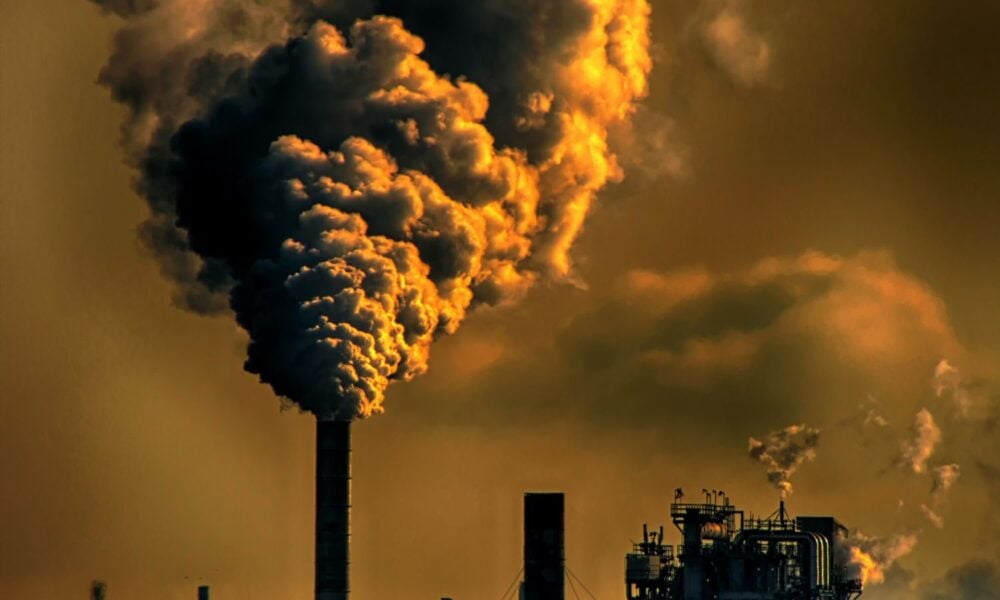In an important win for climate accountability in the United States, the US Supreme Court decided that lawsuits filed in Colorado, Maryland, California, Hawai’i, and Rhode Island against fossil fuel companies including ExxonMobil, Chevron, Shell, Suncor, and others will remain in state courts. Now the cases, brought against the oil and gas giants for their decades of disinformation and other contributions to the climate crisis, can finally move ahead.
The plaintiffs in this case are just a few of dozens of states and municipalities in the United States and its territories to have filed lawsuits aimed at holding fossil fuel companies accountable for climate damages and/or deceiving the public about the harm their products cause. The US Supreme Court decision—technically, a denial of certiorari—comes after 20 appellate judges from six circuit courts, and the US Solicitor General have all also rejected fossil fuel industry arguments that sought to prevent these cases from advancing in state courts where they were filed.
This week’s decision has been years in the making and paves the way for dozens of cases to move forward in state courts. But why are states and communities across the United States suing the fossil fuel industry in the first place and what can we expect to happen next?
These lawsuits aim to hold the fossil fuel industry accountable for its role in creating and perpetuating a false narrative about the harm caused by their products. As these cases advance through the courts, here are six key things to know about them:
1. The fossil fuel industry has known for decades that its products cause climate change
Contrary to what the fossil fuel industry would like you to believe, the link between burning fossil fuels and climate change has been well established for decades. In the 1960s, scientists were warning that the burning of fossil fuels was releasing carbon dioxide into the atmosphere, which could have catastrophic consequences for the planet. By the 1970s, major fossil fuel companies including Exxon and Shell had started conducting their own research into climate change, which confirmed the scientific consensus that burning fossil fuels was causing global warming.
At the same time, the industry engaged in a decades-long campaign of disinformation to downplay the seriousness of climate change, mislead the public and policymakers, and thwart efforts to address the problem. The goal of this disinformation campaign was clear: to protect the fossil fuel industry at the expense of the planet and public health. It’s no secret that these companies have a vested interest in maintaining the status quo. But, by denying the science of climate change, they have perpetuated a dangerous narrative that has stalled meaningful action on climate for decades.
2. States and local governments are suing for damages
So why are states and local governments suing the fossil fuel industry now? The answer is simple: climate change is already causing serious damage to their communities. From rising sea levels and increased flooding to more frequent, severe, and widespread wildfires, the effects of climate change are being felt across the United States. In Boulder, Colorado, three years after the city and county filed suit, the Marshall Fire underscored the urgency of the case, destroying more than 1,000 homes in Boulder County and costing approximately $2 billion in damage.
By suing fossil fuel companies for damages, states and local governments are hoping to recover some of the costs associated with climate change including adaptation and infrastructure costs necessary to protect them from the damage already caused. They argue that fossil fuel companies should have to pay for the damage they have caused by spreading disinformation about climate change and delaying meaningful action. Lawsuits seeking cost recovery, or damages, cases have already been brought in New Jersey, Maryland, Delaware, South Carolina, Colorado, Hawai’i, Rhode Island, and California.
3. Most of these lawsuits address fraud, conspiracy, and resulting harms
One thing to note about these lawsuits is that they’re not simply about climate change itself. Rather, plaintiffs in these cases are pursuing a variety of legal theories, including public nuisance, trespass, and fraud. One of the key arguments in many of these lawsuits is that the fossil fuel industry has known about the dangers of climate change for decades and has actively worked to suppress this information and mislead the public. In other words, by knowingly spreading disinformation about climate change, these cases charge that the fossil fuel companies engaged in fraudulent activity that harmed both the environment and the economy.
This is important to understand because it means that these lawsuits aren’t just about assigning blame for climate change. They’re about holding fossil fuel companies accountable for their illegal actions, sending the message that lying to the public won’t be tolerated and taxpayers won’t foot the bill for industry damage.
4. Science plays a key role
The lawsuits are built on a foundation of scientific evidence that shows unequivocally that the use of fossil fuels is causing the Earth’s climate to change. This evidence is based on decades of research by thousands of scientists around the world who have dedicated their lives to understanding the complex systems that govern our planet. It is a testament to the power of science that it has been able to withstand the onslaught of disinformation from the fossil fuel industry to play a key part in the fight for climate justice.
Scientists have a critical role to play in climate litigation. To date, studies from the Union of Concerned Scientists (UCS) have been cited in the vast majority of US climate accountability cases. Our recently launched toolkit, Research on the Record, explains how scientists can support legal accountability for the fossil fuel industry. This toolkit can help scientists and other experts better understand why research is so crucial for climate litigation, what research is most needed, and how to get involved.
5. The lawsuits are being filed in state courts for good reason
All of the US cases, except the recent lawsuit in Puerto Rico, are being filed in state, rather federal, court. This is because the harms alleged by plaintiffs, such as property damage and lost income, often occur at the local level and the violations and remedies for the alleged misconduct fall under state jurisdiction. For example, a state like California might be experiencing more severe droughts or wildfires as a result of climate change, while a state like Florida might be dealing with more frequent and severe hurricanes.
Despite the clear state impacts, fossil fuel companies have attempted to mischaracterize the cases in order to have them dismissed on the basis of federal preemption. These cases do not seek to regulate emissions or change climate policy, both of which would fall under the jurisdiction of the federal government. But, these cases do seek to hold corporations accountable for deception and damages. That’s why 20 appellate judges, 13 federal district judges, and the Department of Justice have all weighed in to reject these arguments from the fossil fuel industry, recognizing that the cases cite state law violations and are not about addressing global climate change, as the industry has tried to argue.
Importantly, by filing lawsuits at the state level, communities affected by climate change are able to hold fossil fuel companies accountable for the damage they have caused in these communities’ own backyards.
6. The cases seek monetary damages
The outcome of litigation against fossil fuel companies for their role in the climate crisis will depend on the specific claims and circumstances of each case. One possible outcome in these cases is that plaintiffs may be awarded monetary damages to compensate for the harms caused by climate change, such as property damage or lost income. It is also possible that some of these cases could result in settlements in which fossil fuel companies agree to pay damages or take other action in exchange for resolving the litigation. With settlements, we do need to be mindful of potentially problematic and overly broad agreements that could offer these companies immunity from liability.
What comes next
By holding fossil fuel companies accountable for their role in spreading disinformation about climate change, a growing number of lawsuits are sending a message that the public won’t stand for lies and deceit. They’re also putting pressure on the fossil fuel industry to take responsibility for its actions and to hasten the transition to cleaner, more sustainable sources of energy.
The lawsuits against the fossil fuel industry for disinformation about climate change are a long overdue step towards accountability and justice. We still have a long way to go in terms of transitioning to a clean energy economy and mitigating the worst impacts of climate change. But climate litigation is an important step in holding the fossil fuel industry accountable for its role in the crisis and determining who should pay.
Of course, the fossil fuel industry is fighting back. The corporate and trade association defendants have hired teams of lawyers and are using every legal and political maneuver available to try to delay and dismiss these lawsuits to prevent juries from hearing the evidence against them.
But the tide is turning. Public opinion is shifting, and more and more people are demanding action on climate change. The fossil fuel industry is on the wrong side of history—and they know it. As these lawsuits move forward, they offer a way for communities and advocacy groups to hold powerful corporations accountable for their lies and their role in contributing to global warming and blocking the action we urgently need to combat it.
Note: The photo above, covered by a Creative Commons 3.0 license, was cropped.

